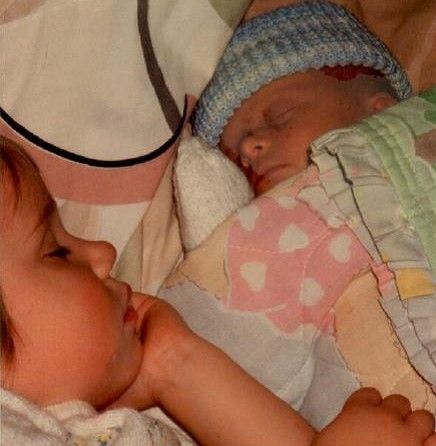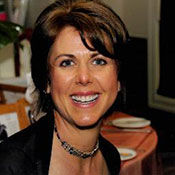Down Syndrome: A New Addition To Our Family

At the time of our son’s birth, I was familiar with many of the physical malformations and cognitive limitations associated with Down syndrome (a short, stocky, intellectually impaired person with inarticulate speech quickly jumps to mind). However, I was shocked to learn of the plethora of serious medical conditions associated with this diagnosis.
Hearing loss, ear infections, heart defects, low muscle tone, food allergies, hip dysplasia, cancer, and impaired eyesight, are but a few. Knowing the possibility that our son may have one or more of these conjured, for me, a lifetime spent in and out of emergency departments and medical clinics.
One rehabilitation idiom is as follows: early intervention improves functional outcome. So it goes that early diagnosis is the key to understanding the best plan of approach. In our situation, the hospital staff wasted no time in getting the multitude of medical assessments underway for him.
As quickly as they were donning their lab coats, I was donning my case manager’s hat. I immediately placed myself alongside the specialists and watched, as they poked, prodded, and scanned his tiny, and somewhat listless, body. I listened intently to their running, prognostic commentary. Within a few hours after his birth, we were given good news: from a gross functional perspective, none of his vital organs was seriously impaired.
A wave of relief fell over me, and not because he was healthy, per se (the only real feeling connecting me to him was that hard-wired instinct a mother has towards her newborn: keep the baby alive). Rather, it meant that our family, and more so our lifestyle, would not be as impacted, as many lifestyles are when a serious medical condition befalls an individual.
Perhaps the lack of empathy for his well-being stemmed from the lack of time we had to bond in those first few hours after his birth (I didn’t get to do the typical things that most moms do with their newborn, like hold him, count his fingers and toes, and simply relish in the wondrous experience of motherhood). Perhaps it was related to me taking on the role of case manager more so than just being his mother (in retrospect, this was a likely coping mechanism to deal with the shock). What I do know for certain is that I had not fully accepted the diagnosis of Down syndrome.
I do recall outwardly acting as if I had, so as not to invite the concern of others – and to avoid the ignorant questions and comments from people, including family members, that somehow I was responsible for his condition (e.g. “Was it something you ate when you were pregnant that caused this”?). But, inwardly I was feeling a growing depression. I couldn’t even watch a television commercial that was selling diapers, 99 ¾ percent pure soap, infant formula, etc. because what they were portraying were happy, fulfilled mothers with perfect newborns. I was far from feeling this sentiment.
It’s hard for me to admit, but I was secretly wishing that he had had a serious Down syndrome-related medical condition that would eventually take his life. I thought that if he were gone, so too would be my depression.
To cope, I turned off the television – and my emotions – and focussed on the biological urge to care for him: feeding, bathing, diaper changing, and the like. It was also helpful to have my daughter around. Focussing on her activities distracted me from my grief.
But over time, I slowly began getting to know our son’s behaviours; not the characteristically Down’s one (like his tongue hanging out of his mouth) but the ones that were truly defining him as a unique human being. For example, he was patient and would keep himself entertained for long periods of time. He especially enjoyed watching his shadow move across a wall, as he wriggled his arms and legs around.
Getting to know him was also inviting more and more love for him. In no time, he, and his Down syndrome, became a wonderful addition to our family. Eventually, I was able to tell my old bedfellow, despair, to pack his bags and leave. I recall precisely the moment it happened.
I am getting him ready for bed, with the usual routine of feeding, changing his diaper, and getting him dressed in his teal blue sleeper. But instead of placing him in his crib, I put him on my bed and lay beside him. He isn’t fussing or crying. He is so peaceful, just lying there. I watch over him, as he quickly falls asleep. I gently caress his smooth, warm cheek and kiss his forehead. It is in this moment that I begin to realize how truly perfect he is – and that he’s mine – Down syndrome and all.
I am so thankful that my built-in, ready-to-go biological need to physically nurture him was greater than the emotional despair I was feeling, as this allowed me the time to fall in love with him. I am also thankful that he has remained healthy and without the serious medical conditions associated with Down syndrome.
Share your story about a difficult situation you, or someone you know, experienced because of a disability. Disability Matters.


Comments (0)
This thread has been closed from taking new comments.
Related Posts
Aging Parents: Caregiving
On December 12, 2015 my husband and I got a phone call from one of his brothers. It was bad news. Their…
Read moreAnything But Sorry
“Anything but sorry: what to say when a baby is born with Down syndrome” is a recent campaign launched…
Read more